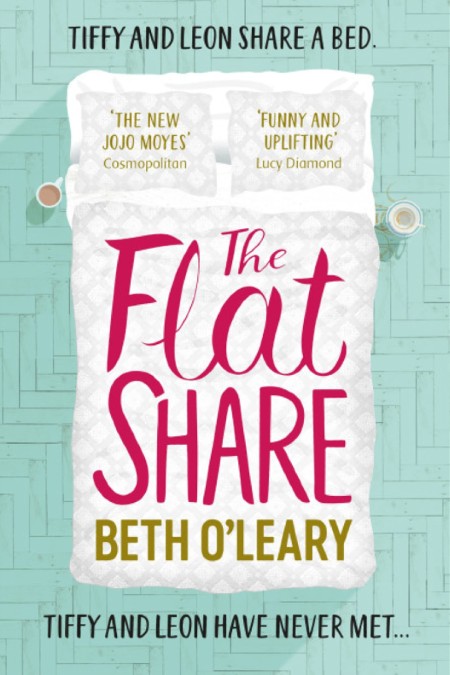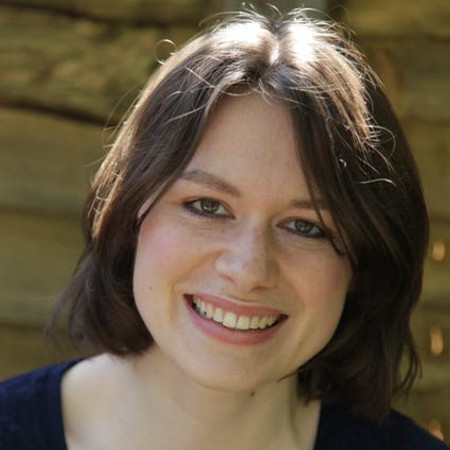
There is a giddy escapist loveliness to people falling in love, a reassuring sense that the world night be cruel and quite nasty at times but good things still dwell within its blighted surrounds.
Usually when two people are falling in love, however, it’s because they’ve met in one of those “meet cutes” that only seem to happen in romantic comedies (but are all the more delightful for that), quite like the sight and sound and, and well, everything of each other, and decide that spending huge amount of time with each other is the best thing that could happen to either of them.
But in Beth O’Leary’s profoundly wonderful debut novel, The Flatshare, the two people in question, the two people who might fall in love if all the Cupid-ian pieces fall into just the right rose-hued order, haven’t actually met.
That’s right – they share a flat, but under the novel’s delightfully quirky premise, they are never there at the same time.
This is not, you need to be assured, because there is some desperately unfixable clash of personalities; quite the contrary in fact – Leon, the one who has the lease, and Tiffy, who sublets from him, actually get along perfectly well via a daily succession of Post-It Notes and home-cooked meals of both the sweet and savoury varieties.
“‘It’s not just sharing a flat, Tiff, it’s sharing a bed. Sharing a bed is odd,’ Mo says worriedly.
‘What if this L. Twomey is a man?’ Gerty asks.
I’m prepared for this one. ‘It doesn’t matter,’ I say calmly. ‘It’s not like we’d ever be in the bed at the same time – or the flat, even.’
This is uncomfortably close to what I said when justifying staying at Justin’s place last month, but never mind.” (P. 7)
The reason neither has met the other, at least for much of the novel – this is not Sleepless in Seattle where the meeting occurs only right at the end; The Flatshare does get reticent, sweet, thoughtfully quiet Leon and colourfully-dressed, vivaciously friendly but troubled Tiffy together in the most hilarious of ways reasonably early on – is that Leon is there during the day between 8am and 6pm (he’s a palliative care nurse who works nights) and Tiffy works day at a publishing form where she is chronically underpaid but very much loved and appreciated (for the most part).
So, Tiffy has the place between 6pm and 8am and all weekend – Leon has a girlfriend named Kay who demands he spend each and every weekend with her – and Leon has it otherwise, an admittedly odd arrangement that actually ends up working well for both of them.
But, of course, at its heart, The Flatshare is one of those gloriously want huggy Britsh romantic comedies where people are sweetly off kilter, ultimately good and kind people and love, the most swoon worthy of romance, is all but happily inevitable, and so you know a meeting, a liking and naturally a whole lot more, is all but happily inevitable.
So far, so expected.
What sets The Flatshare from many other entries in this understandably crowded genre is the O’Leary doesn’t rely on love alone to power the compelling narrative.
In fact, there are some very serious elements thrown into the story which have the effect of fleshing out the characters well beyond romantic comedy stock standard, add substance and emotional heft to the tale of two people finding each other and loving what they see, and bringing The Flatshare alive in a way that makes it feel groundedly human as much as it is heartwarmingly romantic.

There is nothing, of course, wrong with a bright, light, escapist read; it is often just what the stress-busting doctor ordered, the tonic for a world-weary soul that wants to be reassured that good things can still happen to sweetly hopeful people.
But The Flatshare excels because it not only delivers this, and then some, but because it confronts some pretty big issues that makes the lives of Tiffy and Leon ripe for love true love but also manifestly all the more complicated for it too.
Tiffy is trying to fend off obsessive stalkery ex-boyfriend Justin who is on a missio to singlehandedly redefine “gaslighting”, and Leon has a brother who’s in jail, avowedly innocent but with no one willing, it seems, to help fly the coop.
Into the morass of very real issues, which to her credit O’Leary gives sufficient time to be explored and for their presence to be felt and their seriousness weighed and found existentially terrifying, comes the possibility of love, and it is very, very good, but it is not the solution to all their troubles, something which O’Leary doesn’t rush to get rid of in a mad dash to some sort of happily ever after.
“Leon has arranged to meet Mr White on the pier. When we reach the seafront I let out an involuntary squeal of excitement. The pier stretches out into the grey-blue sea like this is a painting of one of those old seaside resorts where Victorians used to hang out in ridiculous knee-length swimwear. It’s perfect. I reach into my bag and get out my big, floppy, 1950s sunhat, yanking it onto my head.
Leon looks at me with amusement.
‘What a hat,’ he says.
‘What a day,’ I counter, spreading my arms out wide. ‘No other headwear would do it justice.’
He grins. ‘To the pier?’
My hat bobs as I nod. ‘To the pier!'” (P. 209)
The author’s willingness to give her two characters feet of clay and issues abounding to sort through, real issues that need time, consideration and don’t go away overnight, gifts The Flatshare with an affecting groundedness that makes the prospect of romantic love feel deservedly hard-won.
The novel also benefits from an eye on pitch-perfect characterisation that carries through not simply to the main players but to a supporting cast too including Tiffy’s main author and celebrity crocheter, Katherin and her besties, Mo, Gerty and Rachel, and Leon’s brother, and his two favourite patients, bubbly, precocious seven-year-old Holly and elderly Mr. Prior who still pines for his World War Two boyfriend.
Every single one of these characters feels vividly, heart-capturingly alive, particularly Tiffy and Leon whose notes and then actual conversation, sparks and surges with garrulous joy, witty wordplay and imaginative observations, such that you find yourself grinning more often than that at their vigourously appealing repartee.
The spectacular good quality of the dialogue holds true in their more serious moments, proving that not only does O’Leary have a gift for memorably engaging characters but she knows how to make them feel brilliantly, enrapturingly alive in ways that make you wish you were friends with them too.
The Flatshare is a delight on every single level – possessed of a story that is escapist, fairy floss delightful but also groundedly real and true, it lavishes time and love on its characters, makes them interact in ways that are a joy in and of themselves and not just as narrative momentum fodder, and reminds that life might be difficult and harsh and awful at times but that it is also the repository of escapist beauty like love and we should never assume that the former is so powerful it can’t ever yield to the latter.
Of course, when it does, it is magic, and The Flatshare luxuriates in this certainty, gifting us with a story that elevates the heart in a way that feels both light-as-air diverting and seriously honest, and taking us to some very thoughtfully hard but finally life-affirming places in the process.